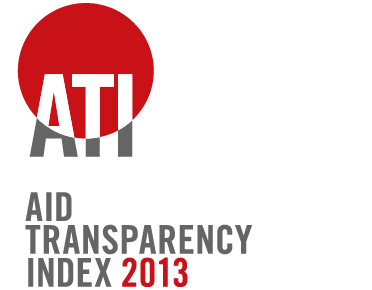Further Findings – #03.
Performance by type of organisation
Back to OverviewBilaterals
Bilateral donors as a group (average score of 26%) perform poorly compared to multilateral donors (average score of 53%). Over three quarters of bilateral donors are placed in the poor or very poor categories, with more bilaterals placed in the very poor category than in all other performance categories combined. It is also noticeable that of the 26 organisations included in the very poor category, 16 have small development cooperation budgets (under USD 100m) or are considered to be new or non-traditional donors. Nevertheless, some of the large, traditional bilaterals also appear low down in the ranking, including France, Japan, Norway, Spain, Switzerland and two U.S. organisations (Department of State and PEPFAR). For 22 indicators, more than half of all bilaterals publish no information at all. Only three (Korea, MCC, and UK DFID) publish budget documents. Quality of FOI legislation is the only indicator for which most bilaterals score (only Cyprus, Luxembourg and Spain do not). Only 29 of the 49 bilateral agencies included in the Index publish information in machine-readable formats and the comprehensiveness of publication varies significantly between agencies.
Multilaterals
Multilaterals as a group do well in the Index, with 13 of the 17 placed in the very good, good or fair categories. The average overall score for multilaterals (53%) is significantly higher than the overall Index average (33%). Multilaterals are more likely to publish information in IATI XML format than bilaterals – 13 of the 17 multilaterals included in the Index publish information to IATI compared to 15 of the 49 bilaterals. GAVI (87%) and UNDP (83%) lie considerably ahead of the next class, which contains organisations scoring between 60% and 74%, including the AfDB, a new IATI publisher. The EBRD is the lowest ranking multilateral, scoring only 24.5%, reflecting the lack of comprehensiveness in the publication of organisation and activity-level data. The EBRD is the only multilateral agency that does not publish any information systematically in machine-readable formats. There are 15 indicators on which all multilaterals score. Fewer than half the multilateral donors score on conditions, MoU, results and sub-national location.
International Financial Institutions
As a subset of multilaterals, the IFIs[1] perform better than bilaterals but not as well as multilaterals overall. Only the AfDB is in the good category. The AsDB and IADB are placed at the top of the fair category, with less than one percentage point between their scores. The remaining IFIs are all in the poor category, with the EBRD (25%) ranking the lowest within this group. The EIB also performs poorly, scoring only 27%. It does not score at all on 15 indicators. A comparison may be drawn with the other non-EU IFIs, which have an average score of 44%.
EU Member States
As a group, the EU Member States perform poorly, scoring an average of only 23%, compared to the average score of 31% for non-EU bilaterals (looking only at principal aid agencies). The EU Member States represent 22% of the total volume of aid provided by agencies included in the Index and include several large aid providers. Only five of the 27 EU Member States (UK, Sweden, Denmark, Netherlands and Germany) appear in the top three categories.[2] The majority of the EU Member States are in the very poor category. This includes a mixture of large and small agencies. A total of eight EU Member States – Denmark, Finland, Germany, Ireland, Netherlands, Spain, Sweden and UK – are publishing to IATI; and in some cases for more than one agency or ministry, such as Germany, Sweden and the UK. Although both Finland and Spain publish IATI data, it was not taken into consideration for the purposes of the Index as the data is not current. Some EU Member States with smaller development cooperation budgets – Czech Republic, Estonia and Latvia – have started publishing information on their aid activities in machine-readable formats including CSV or Excel.
